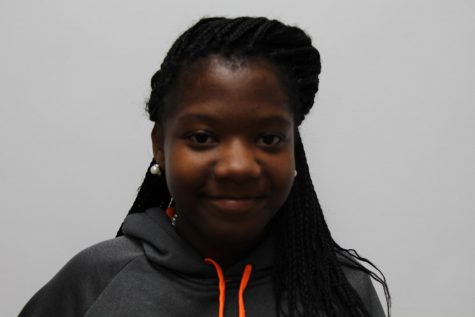For some staff, teaching is second career
November 9, 2017
Sometimes a decision needs to be changed. There are many teachers who didn’t go to college for teaching. Instead, they had varieties of other jobs before becoming a teacher.
Ceramics teacher, Julie Sullivan worked with fashion designers.
“I left Chicago and pursued my degree in Fashion Design. I worked for Vera Wang and some lesser known fashion companies in New York in Fashion PR and Fashion Design,” Sullivan said.
Jim Kappas, social science teacher, worked in the business world to help forward his knowledge.
“I always wanted to go into teaching, but I delayed entry into the industry because I wanted a more well-rounded education and gain first hand business experience before teaching it,” Kappas said.
Jim Coventry, English teacher, was a restaurant manager who found his calling by accident.
“If I was going to be in management, I needed to quit my job and pursue an MBA (master’s degree in business). Once I started to go down that path, I needed a part-time job, and I learned that (at the time) anyone with a college degree could be a substitute teacher. Within a month, I knew that was what I was born to do, and I never turned back!” Coventry said.
There are certain aspects of her chemist job that science teacher Kristy Riley misses.
“I miss taking vacations when I wanted, working in new products, making my own schedule and the bonuses and promotions that I received,” Riley said.
Josh Bloodgood, social worker, lived in Arizona and was a case manager for the state of Arizona’s children, youth, and families.
“I monitored the placement of children in foster care and conducted adoptive home studies. I miss living in the desert; Tombstone was one of the towns in my area,” Bloodgood said.
Scott Kupka, English teacher, worked at Golden State Foods, which is the McDonald’s Distribution Center.
“I was miserable at Golden State Foods. I decided to go back to school to teach because I always loved reading and writing, I enjoy the classroom setting, and I wanted to make some sort of difference in this world,” Kupka said.
Julie Bortoli, counselor, was a probation officer.
“Most of my work as a probation officer was helping my clients realize their full potential. Most of my clients were from dysfunctional homes and although my role was punitive in nature, I ended up doing more counseling that punishment,” Bortoli said. “I miss my squad car and badge, and I also enjoyed testifying in court and helping my clients learn to make better decisions with their lives.”
Charlotte Kics, vocational ed teacher, worked in advertising, and although she enjoyed traveling, it didn’t fit in her life.
“When my husband and I started a family, I needed a more flexible schedule that did not involve travel, so I decided to pursue a master’s degree in special education,” Kics said. “The ability to help young people prepare for a successful future has been very rewarding.”
Ken Schoen was a salesman for Voss equipment.
“One of my responsibilities was conducting forklift certification classes, and it was from those classes that I realized I enjoyed teaching,” Schoen said. He pursued teaching when he was layed off after 9/11.
Mark Hudson, PE teacher, was a Student Activities Director and Assistant Girls Basketball Coach at Aurora University.
“I knew that teaching was what I was destined to pursue,” Hudson said.
Sandy Carlson, guidance counselor, was an accountant.
“It has always been a dream of mine to help students become successful after high school,” Carlson said.
Other teachers who had former careers are as follows:
Susan Thomas, biology and math teacher, was an IT consultant/project manager with Accenture.
Tom Bond, math teacher, was in manufacturing at Caterpillar, then in industrial sales in a family business.
Lynn Bond, math teacher, was an engineer.
Deb Pohlmann, science teacher, was a research microscopist at Amoco Chemical Company in Polymer Physics Research branch.
Christina Florence, health teacher, was an athletic trainer.
Rose Fleming, English teacher, was a bank teller.
John Smith, history teacher, did factory work before going back to school for his bachelors.
John Jackson, history teacher, grew up farming and was a cop.
Brit Kancauski, German teacher, was an aquatics director for a pool.
Mark Krusz, athletic director, was an admission counselor and assistant women’s basketball coach at Millikin University and a women’s basketball coach and recruiting coordinator at Ball State University.
Adam Depew, English teacher, worked at McGraw Hill in Burr Ridge as an editor and worked at a powers ports dealership selling motorcycles, watercraft, dirt bikes, snowmobiles etc..
Dave Rahtz worked in the natural gas fields of Wyoming and then did geotechnical/civil engineering work (landfills, roads, etc.)
Rob McGahey, computer teacher, had a career in the construction industry – project management and design/drafting. He worked for a commercial building company, a historic renovation company, and large scale production homebuilders. He also started his own business in renovation.
Gary Anton, permanent substitute teacher, used to be a credit/sales manager.
Overall, these teachers are glad they changed their minds.



